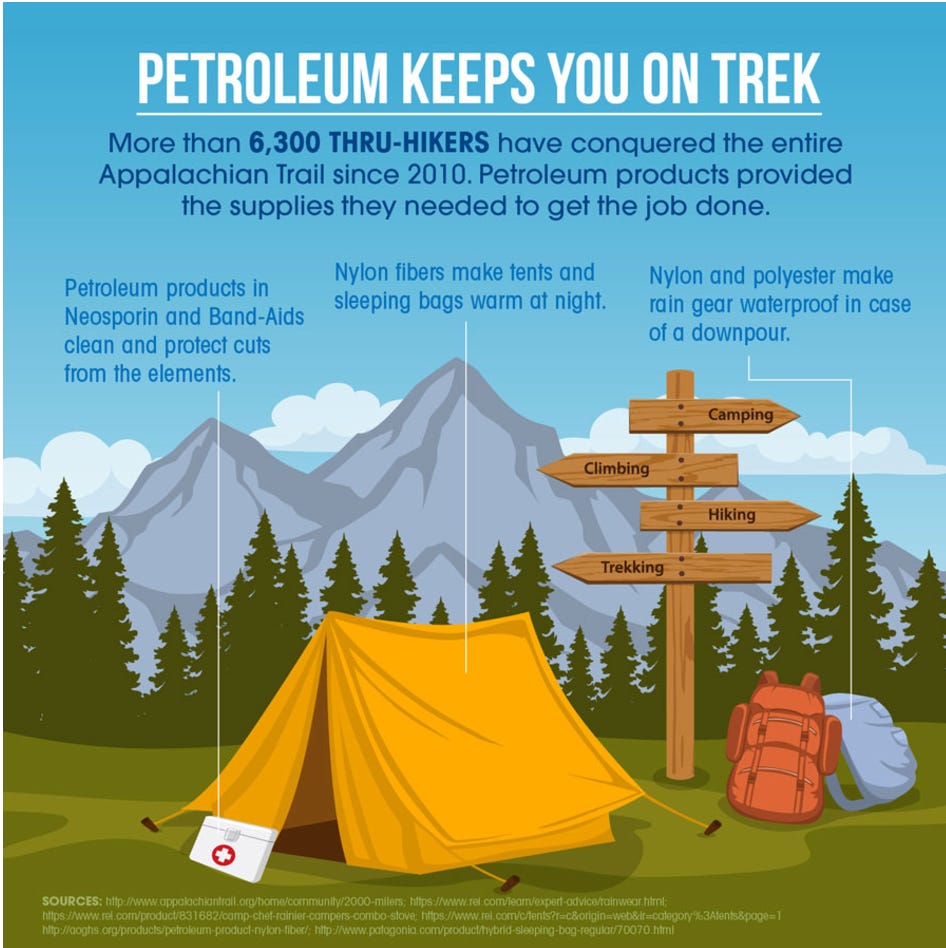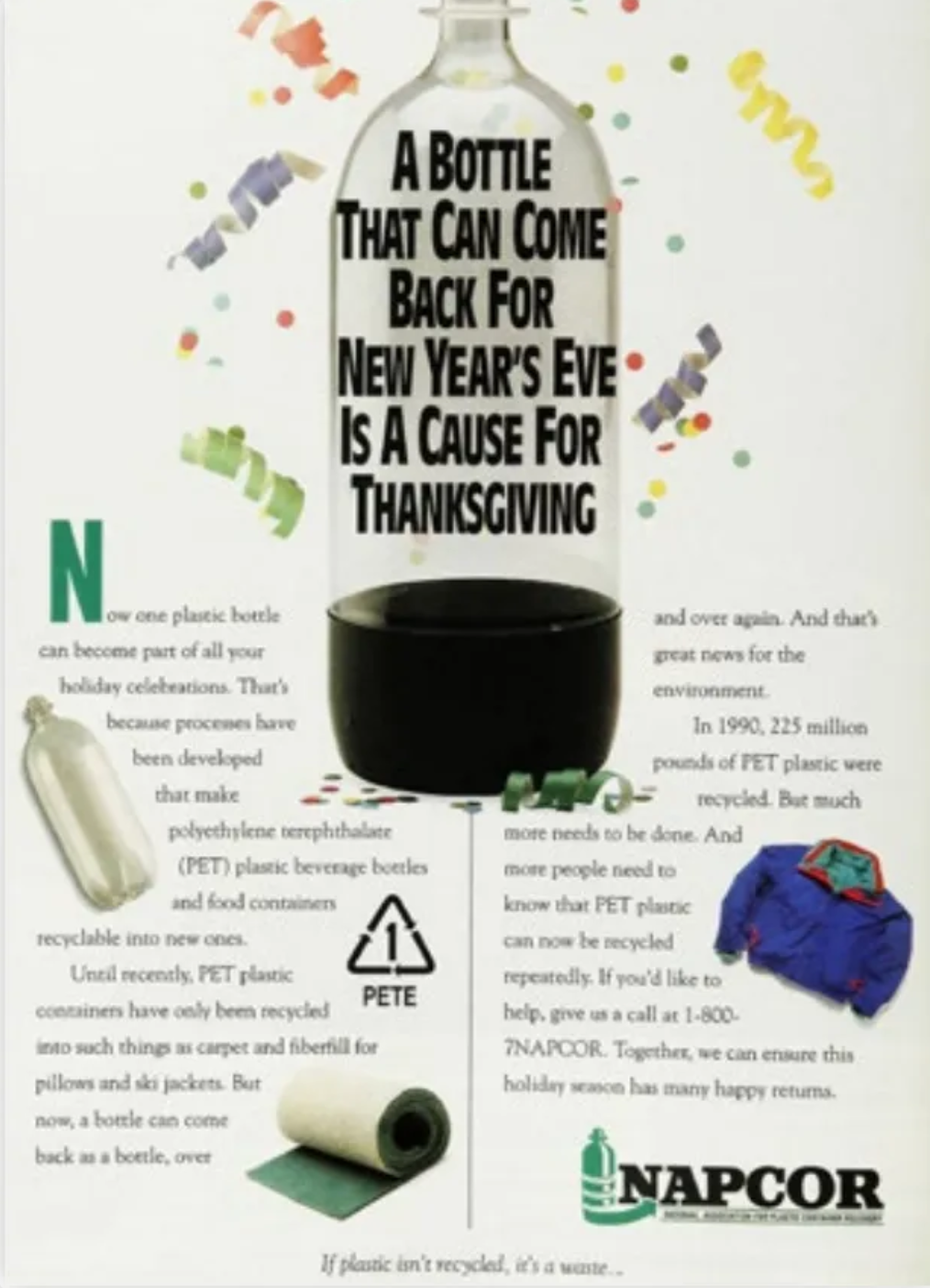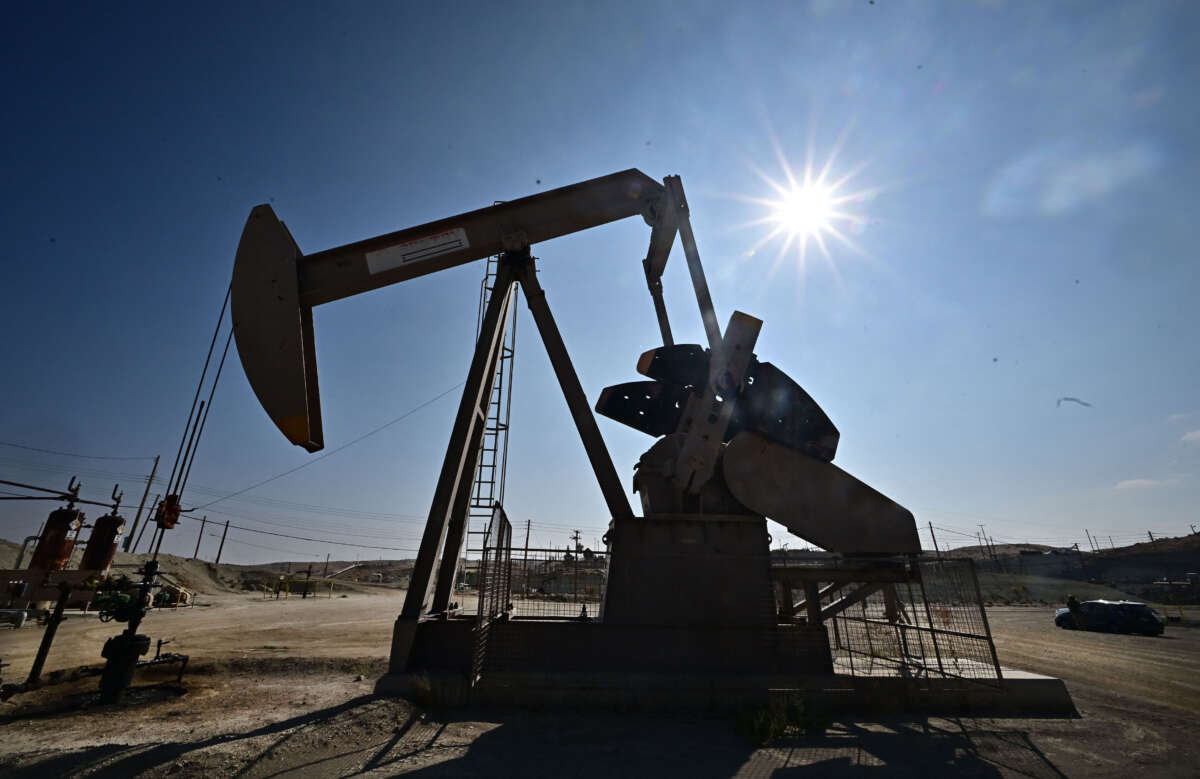Part of the Series
Covering Climate Now
Support justice-driven, accurate and transparent news — make a quick donation to Truthout today!
Donald Trump’s impending return to the White House raised questions about potential new barriers to holding the fossil fuel industry accountable — but it hasn’t deterred two more governments from taking Big Oil companies to court over deception claims.
The State of Maine and Ford County, Kansas, filed separate lawsuits against major oil and gas companies and industry trade associations on Thanksgiving week, signifying that state and local governments will continue to pursue legal consequences for corporate deception and try to recover the costs to their communities — even as fossil fuel interests hatch plans to eviscerate climate policy and expand oil and gas operations under the next administration.
Maine Attorney General Aaron Frey sued ExxonMobil, Shell, Chevron, BP, Sunoco, and the American Petroleum Institute in state court, becoming the 11th attorney general in the United States to argue that Big Oil should be held accountable for deceiving the public about their products’ harm to the climate. Frey, who is asking the court to require those companies to pay for past and future climate damages and stop deceiving Mainers, filed the lawsuit days before facing an election contest this Wednesday against two other candidates for state attorney general.
Maine Governor Janet Mills also threw her support behind the case, stating that “For decades, big oil companies have made record profits, taking billions out of the pockets of Maine people while deliberately deceiving them about the harmful impacts of fossil fuels — impacts that Maine people see and feel every day.”
The very next day, Ford County, Kansas, home to fewer than 35,000 people, filed a federal class action lawsuit against major fossil fuel and petrochemical companies and trade associations including ExxonMobil, Chevron, Dupont, Dow, Eastman, and the American Chemistry Council, accusing them of waging a “decades-long campaign of fraud and deception about the recyclability of plastics.”
Earlier this year, the State of California filed a first-of-its kind lawsuit against Exxon for fraudulently marketing plastic products as recyclable. Ford County, which is home to oil and gas production and voted nearly 2:1 for Trump in November, has now filed the second such case and expanded its list of defendants to include other major companies and trade associations. But by filing a class action lawsuit, the small southwest Kansas county has opened the door for more Kansas cities and counties to join its case.
These cases are the latest in a swell of lawsuits against fossil fuel producers worldwide, including those filed by more than three dozen state, city, county, and tribal governments in the United States alone.
Maine
Like its neighbors in the Northeast, Maine has sometimes been viewed as a haven from climate chaos — but that image is shattering as its local economies, public health systems, and infrastructure are increasingly stressed by rising seas, extreme weather events, deteriorating air quality, and warming temperatures. Maine’s complaint blames “the fossil fuel industry’s lies and deceit” for fueling ocean warming and acidification that have shuttered fisheries, the spread of new vector-borne diseases, and high heat days and relentless storms, like one last winter that killed four Maine residents and left more than 400,000 without power.
Despite knowing the harm their products would cause, the defendants in the case “mounted a disinformation campaign to discredit the scientific consensus on climate change; create doubt in the minds of consumers, the media, business leaders, and the public about the climate change impacts of burning fossil fuels; and delay the energy economy’s transition to a lower-carbon future while maximizing profits,” the complaint argues.
Maine’s case alleges seven violations of state law, including failure to warn, negligence, nuisance, trespass, and violations under the Maine Unfair Trade Practices Act, along with a civil aiding and abetting claim against the American Petroleum Institute (API), the fossil fuel industry’s major trade association in the United States.
The case describes how the trade association targeted Maine residents for more than 60 years with deceptive campaigns about the climate and environmental consequences of fossil fuels, largely orchestrated by two seemingly independent groups fully directed by API: the Maine Petroleum Association and the New England Coalition for Affordable Energy.
API used the Maine Petroleum Association, for example, to send “pro-fossil fuel materials” into hundreds of Maine middle and high schools, minimize the potential dangers from oil spills in the state and claim the fossil fuel industry was aiding environmental conservation, and run advertising campaigns in Maine newspapers promoting oil. Then, between 2015 and at least 2020, API directed the New England Coalition for Affordable Energy to market the expansion of methane gas in Maine and across New England through purported studies, public opinion surveys, and various publications, according to the complaint.

With Maine’s new case, the attorneys general of every state in New England are now suing ExxonMobil — except New Hampshire, which is part of a coalition of Republican-led states currently petitioning the Supreme Court to kill climate accountability lawsuits.
Ford County
Like California’s case against Exxon, Ford County’s lawsuit argues that oil and petrochemical company defendants — and their trade association, the American Chemistry Council — knew that plastic recycling was neither technically nor economically feasible at a large scale, but promoted it anyway to ward off regulation that might limit the production of plastic.
The companies “engaged in fraudulent marketing and public education campaigns designed to mislead the public about the viability of plastic recycling as a solution to plastic waste,” and “promote[d] the idea to the American consumer that plastics were recyclable and better for the environment, when in reality they had information that only a tiny fraction of plastics are ever recycled.” The complaint cites a slew of documents (many of them originally unearthed by the Center for Climate Integrity, of which ExxonKnews is a project) showing how they did so, including through public relations campaigns targeting consumers and “sponsored educational materials” sent by plastics industry trade associations to schools.
As Exxon Chemical Vice President Irwin Levowitz put it in one 1994 meeting with industry staff, the companies were “committed to the activities, but not committed to the results” of plastic recycling. That same year, a representative from Eastman Chemical explained to attendees at an industry conference that while recycling someday “may be a reality… it is more likely that we will wake up and realize that we are not going to recycle our way out of the solid waste issue.”

Only 5-6% of plastic in the United States is recycled each year.
The county aims to make the petrochemical giants help fund cleanup of plastic waste and stop advertising their plastic products as recyclable under public nuisance common law.
The lawsuit comes as the same companies and associations are promoting plastic recycling in order to stem the “tide of anti-plastic sentiment,” misleading the public and policymakers about the consequences of limiting plastic production, and successfully lobbied to stall global negotiations to address the plastic waste crisis.
A terrifying moment. We appeal for your support.
In the last weeks, we have witnessed an authoritarian assault on communities in Minnesota and across the nation.
The need for truthful, grassroots reporting is urgent at this cataclysmic historical moment. Yet, Trump-aligned billionaires and other allies have taken over many legacy media outlets — the culmination of a decades-long campaign to place control of the narrative into the hands of the political right.
We refuse to let Trump’s blatant propaganda machine go unchecked. Untethered to corporate ownership or advertisers, Truthout remains fearless in our reporting and our determination to use journalism as a tool for justice.
But we need your help just to fund our basic expenses. Over 80 percent of Truthout’s funding comes from small individual donations from our community of readers, and over a third of our total budget is supported by recurring monthly donors.
Truthout has launched a fundraiser to add 460 new monthly donors in the next 8 days. Whether you can make a small monthly donation or a larger one-time gift, Truthout only works with your support.
